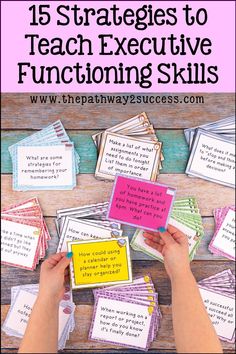Teaching responsibility to middle schoolers is a crucial aspect of their personal development. Pre-teens and young teenagers are at an age where they can start learning more about taking ownership, managing their time, and becoming accountable for their actions. Here are 25 ideas to incorporate into your teaching practice or parenting repertoire to help teach responsibility to middle schoolers.
1.Create a daily schedule: Encourage students to establish a daily routine that balances school, extracurricular activities, and downtime.
2.Set achievable goals: Help students identify short-term goals and support them in breaking these goals into manageable steps.
3.Assign classroom jobs: Rotate positions like line leader, note-taker, and clean-up crew so everyone gets a chance to contribute.
4.Implement organization techniques: Provide tools such as planners and folders to instill good organizational habits.
5.Encourage teamwork: Engage students in team-based activities where they must share responsibilities with their peers.
6.Provide consequences for irresponsible actions: Establish clear expectations with consequences for failing to meet obligations, such as homework deadlines.
7.Teach time management skills: Help students prioritize tasks, set reminders, and utilize breaks efficiently.
8.Discuss the importance of responsibility: Use real-life examples of how taking responsibility can lead to successful outcomes.
9.Hold self-evaluation sessions: Encourage students to reflect on their individual performance and discuss areas for improvement.
10.Practice empathy-building exercises: Teach students how their actions impact others through activities that build empathy and understanding.
11.Track progress: Create a visual chart or other method for monitoring the growth of individual student responsibility levels.
12.Initiate community service projects: Allow students to take charge in organizing charitable events or outreach initiatives.
13.Emphasize punctuality: Encourage timeliness by enforcing consequences for tardiness in class or other activities.
14.Engage in problem-solving activities: Challenge students to take ownership of problems and collaboratively seek solutions.
15.Offer praise and recognition: Acknowledge responsible actions or decision-making and celebrate accomplishments.
16.Utilize technology responsibly: Teach students about digital citizenship and the importance of using technology for learning, not just leisure.
17.Assign long-term projects: Provide opportunities for students to develop time- and resource-management skills through extended assignments.
18.Strengthen decision-making abilities: Encourage students to weigh the pros and cons of various options before making decisions.
19.Practice self-control exercises: Teach students strategies for recognizing and managing their impulses as they navigate tricky social situations.
20.Ask open-ended questions: Encourage reflection by asking questions that require imagination, creativity, or critical thinking skills.
21.Promote self-esteem: Foster self-awareness and confidence through activities that explore personal strengths and weaknesses.
22.Reinforce accountability: Remind students how their choices affect their grades, performance, relationships, and future endeavors.
23.Model responsible behavior: Set an example for your middle schoolers by demonstrating responsible habits daily.
24.Encourage participation in extracurricular activities: Support involvement in clubs, sports teams, band, drama or volunteering programs that instill a sense of responsibility in participants.
25.Provide mentorship opportunities: Pair each student with a younger child to mentor so they can lead by example and nurture a sense of responsibility in both children.
Incorporating these ideas into your classroom or parenting approach can help shape middle schoolers into responsible, self-aware individuals ready to face life’s challenges with confidence.





